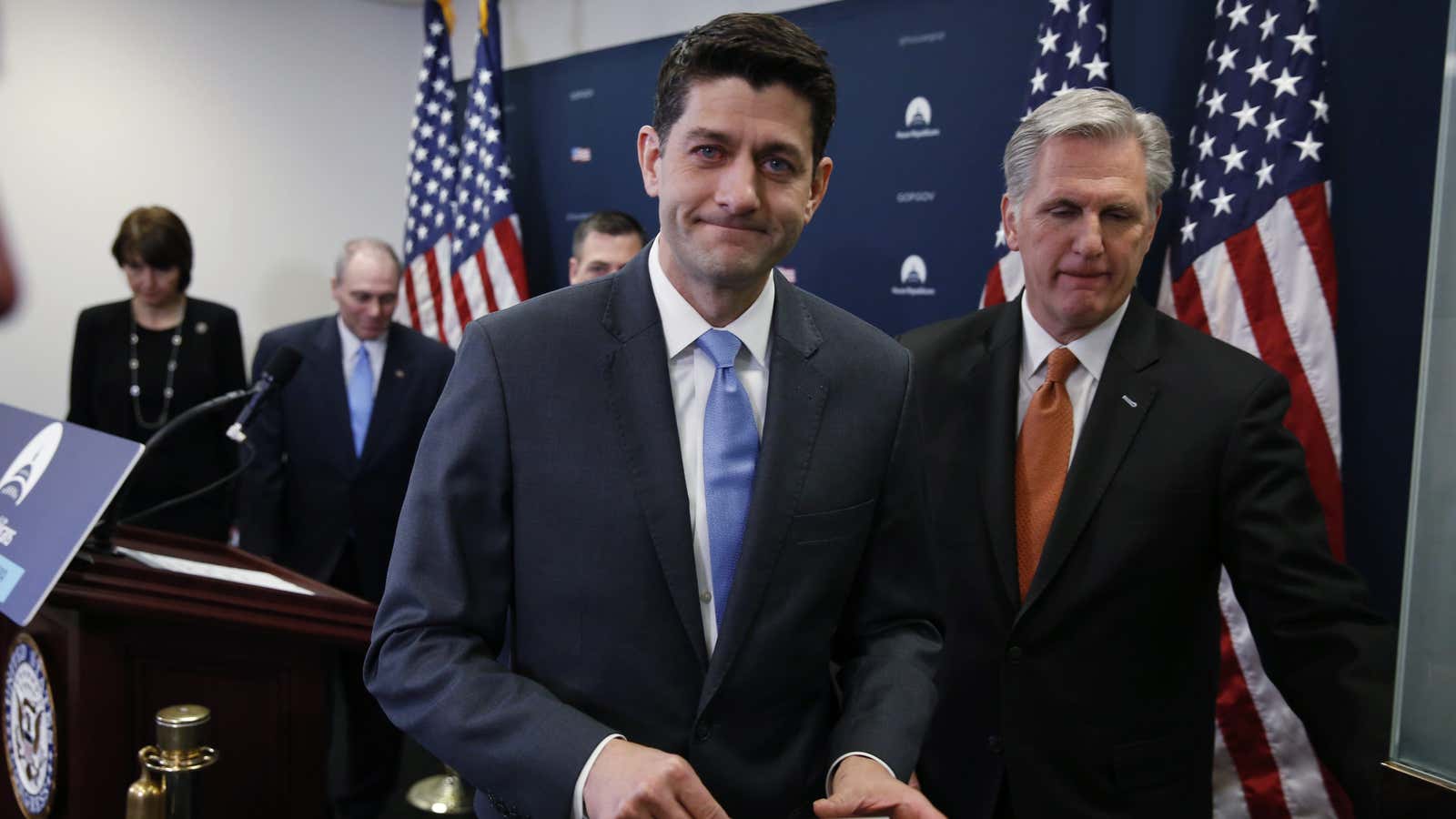Donald Trump signed into law the “Bipartisan Budget Act” today, a sweeping deal that increases US discretionary federal budget spending by over $400 billion in the next two years.
The bill isn’t the end of Congress’s budget wranglings—it merely provides broad guidelines for how American taxpayers’ money will be spent through 2019. Congress needs to negotiate another deal by March 23 to keep the government running, and Trump’s own 2019 budget proposal is due on Feb. 12, which could have very different priorities. But the fact that Republicans and Democrats in Congress forged a consensus to get a two-year budget deal passed is a positive step in deeply divided Washington DC.
It includes big increases in military spending, disaster relief, infrastructure spending, and healthcare for the poor and drug-addicted—but no specific funding for the border wall that Trump has made a key part of his agenda. It will also drive the national deficit up to nearly $1.2 trillion in 2019, a figure that comes with a hefty interest bill and is well above pledges Congress made in 2013 and 2015.
The Congressional Budget Office is still evaluating the 652-page bill, which like much major legislation in this session of Congress was crafted hastily and debated overnight, without giving many outside of Congress a chance to read it. The deal doesn’t cover the additional $2.5 trillion in federal spending that Congress does not allocate every year, which goes to Social Security payouts, pensions, and ongoing federal contracts.
The spending bill contains increases the cap for discretionary military spending by $165 billion over two years, and non-military spending by $131 billion.
The deal also includes over $80 billion in one-time relief spending for the past year’s emergencies, including the hurricanes that devastated Puerto Rico, Texas, and Louisiana, as well as California’s wildfires.
And it includes money for a host of other issues:
Tea Party Republicans fought against deficits during Barack Obama’s presidency, tamping down spending. But some say they are now counting on the economic stimulus unleashed by the $1.5 trillion tax cut bill to provide enough growth the offset the projected deficit.
Correction: An earlier version of this post said the national deficit would rise to nearly $1.2 billion in 2019.
